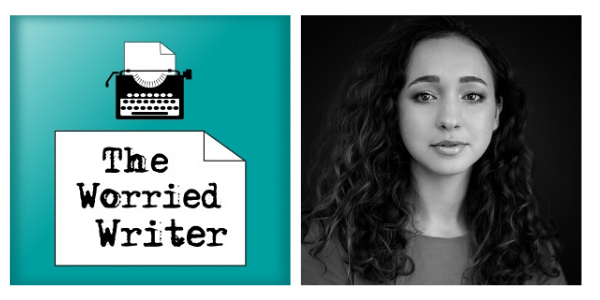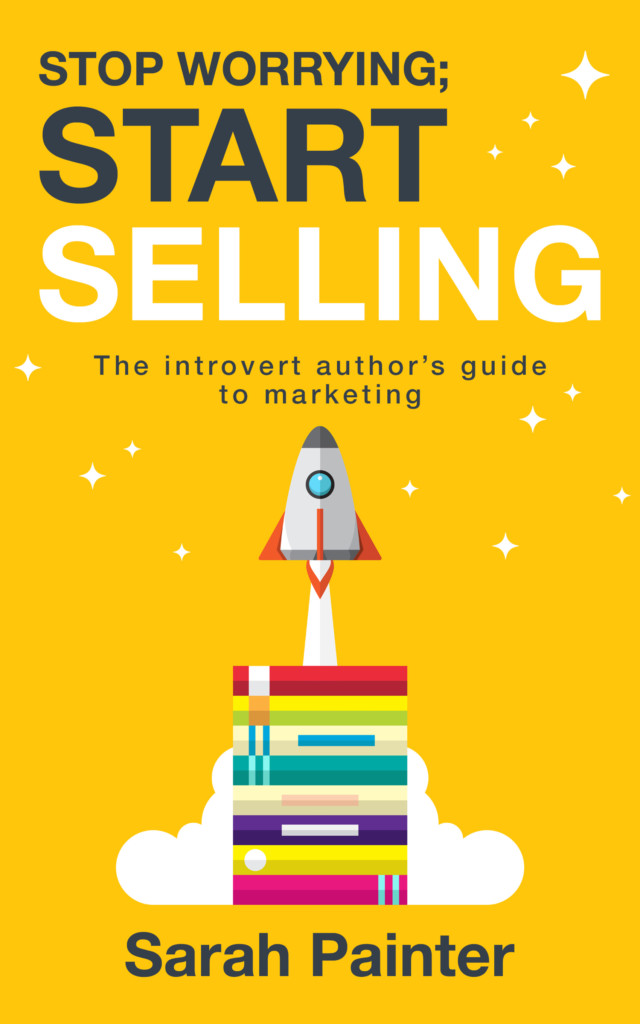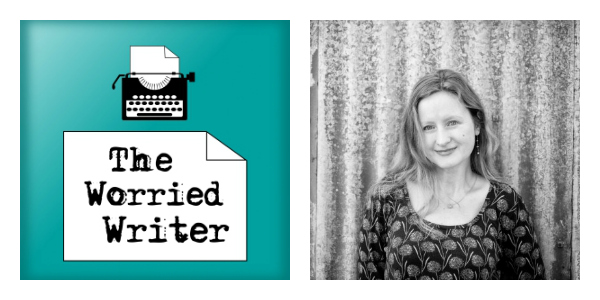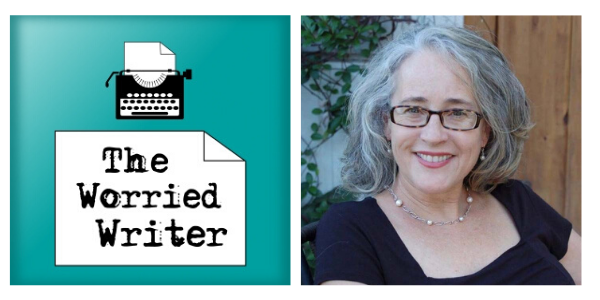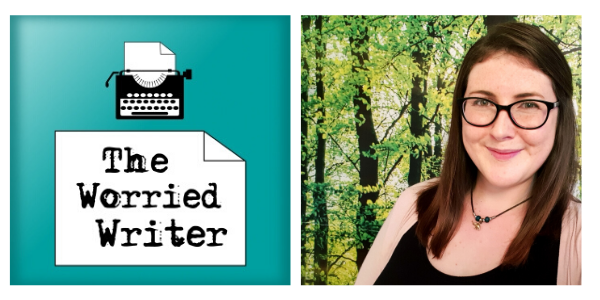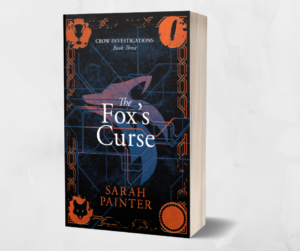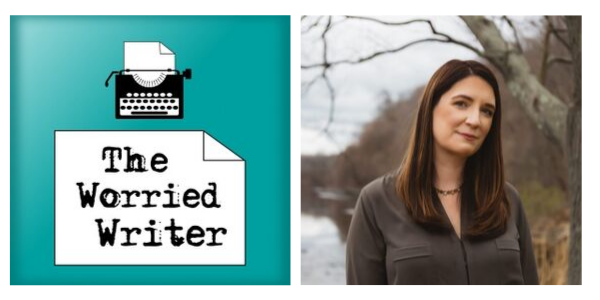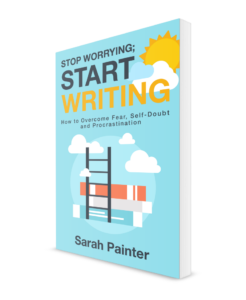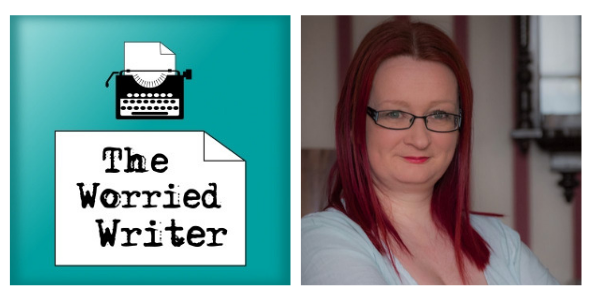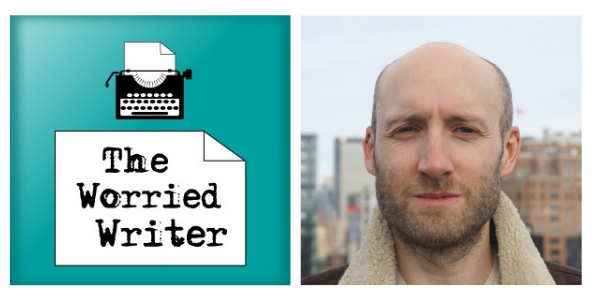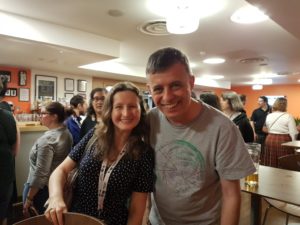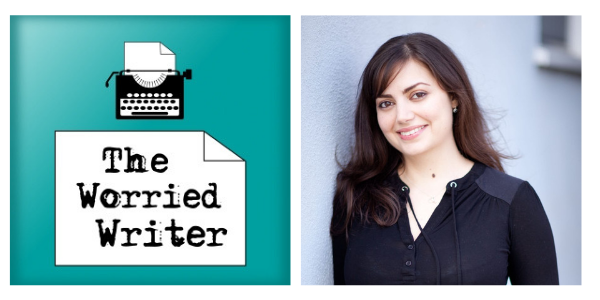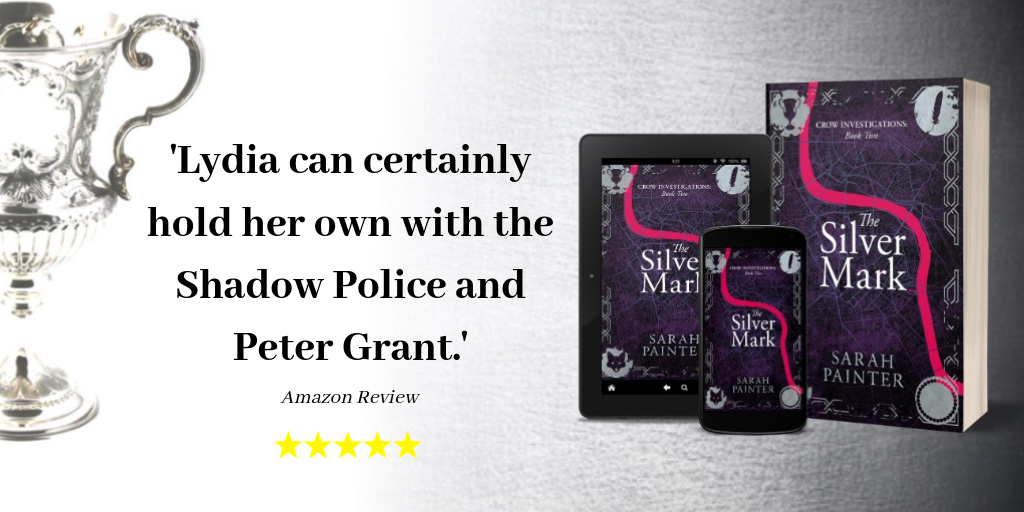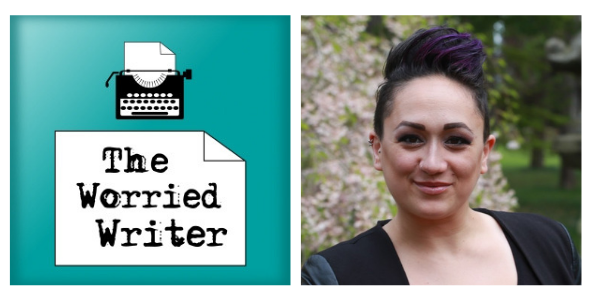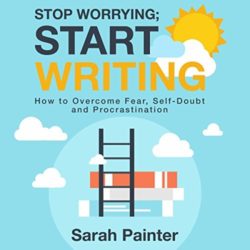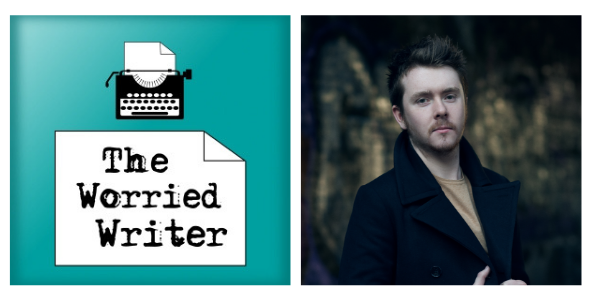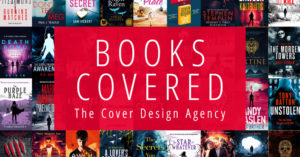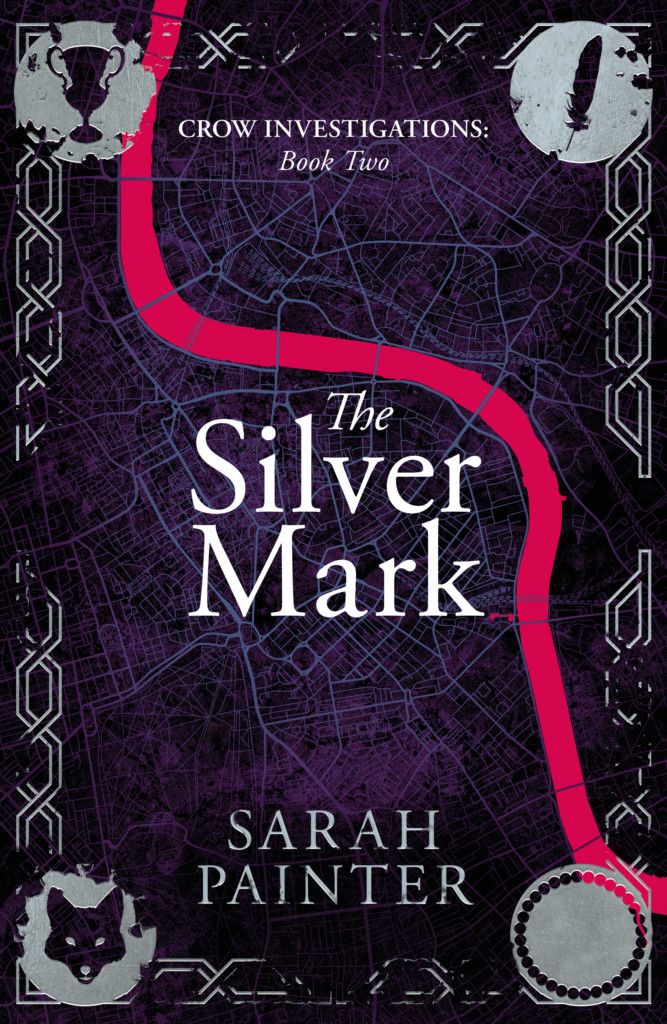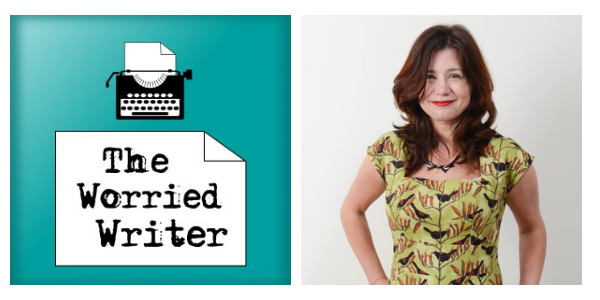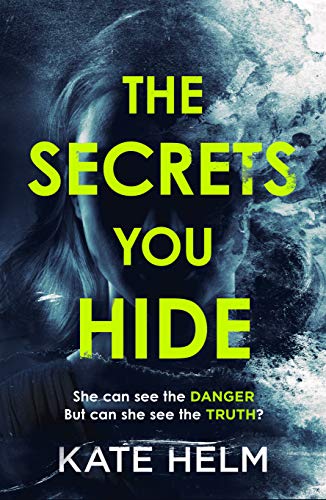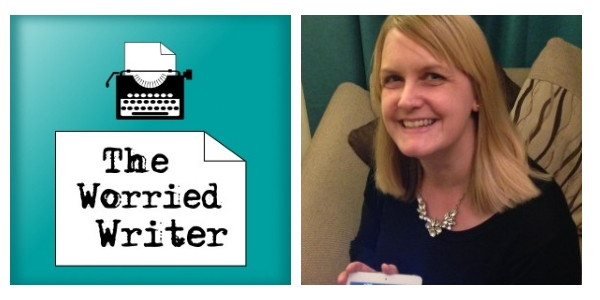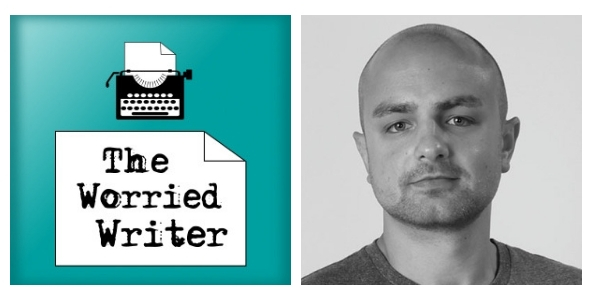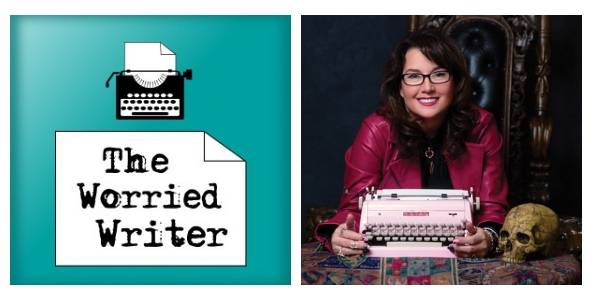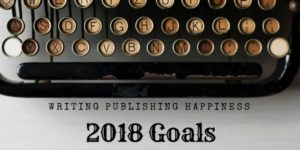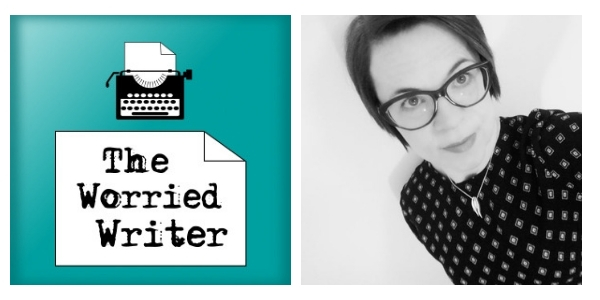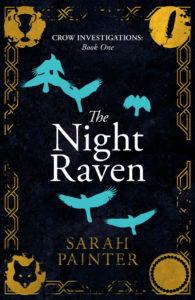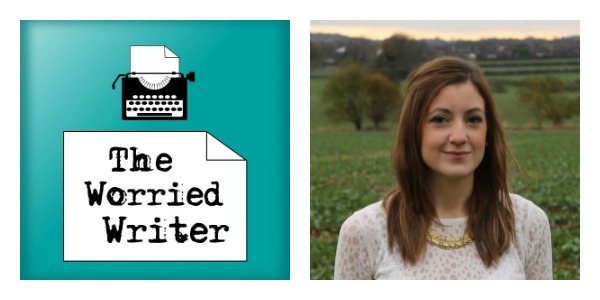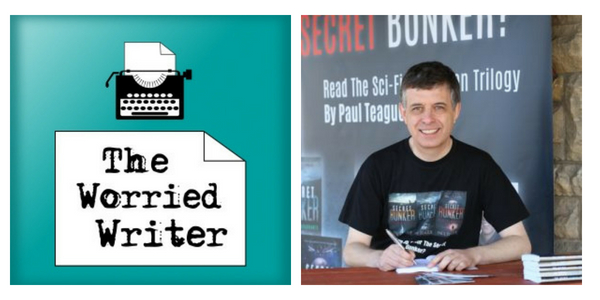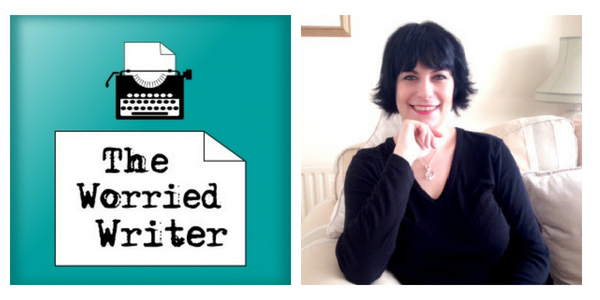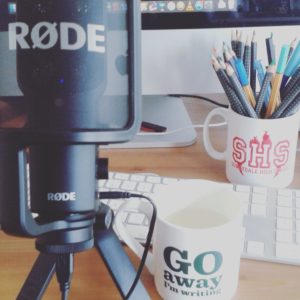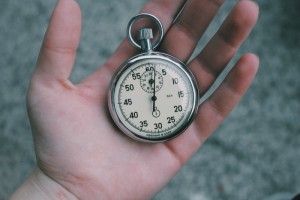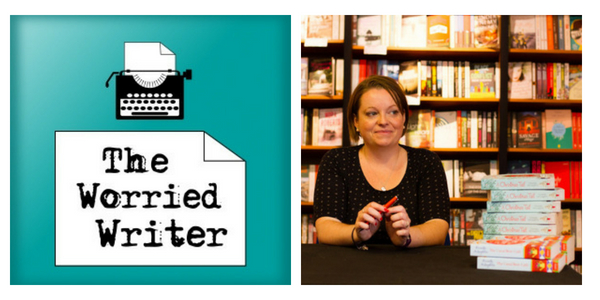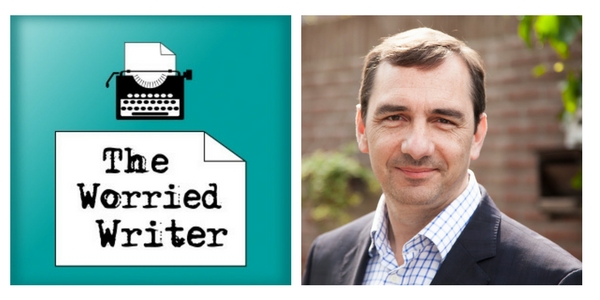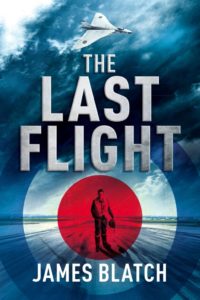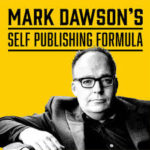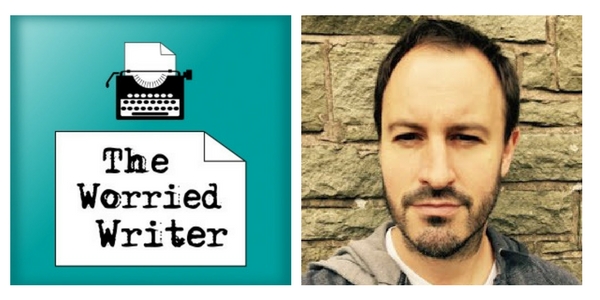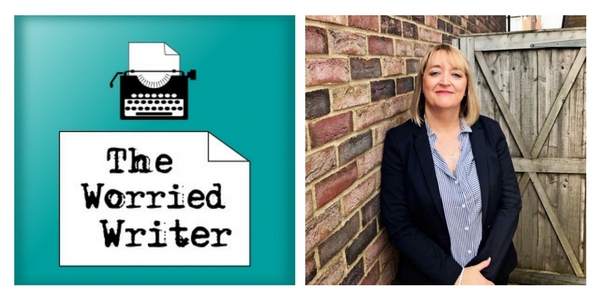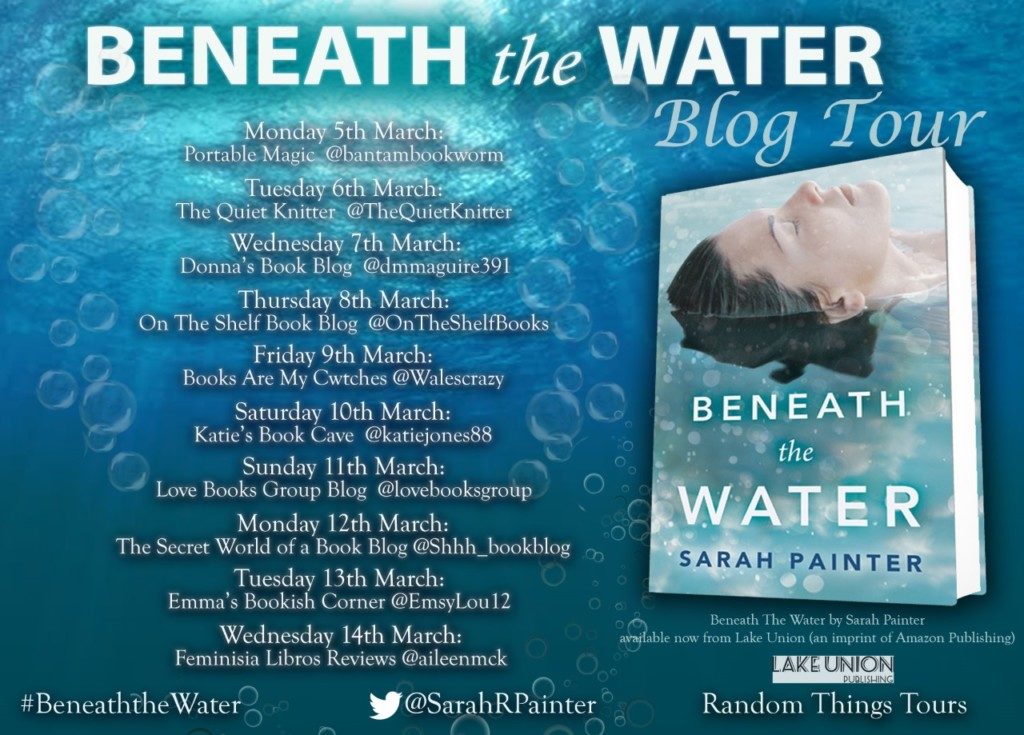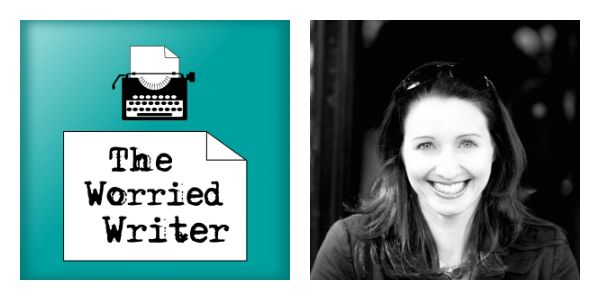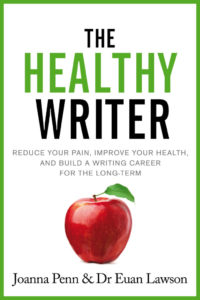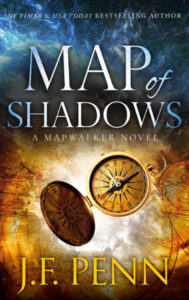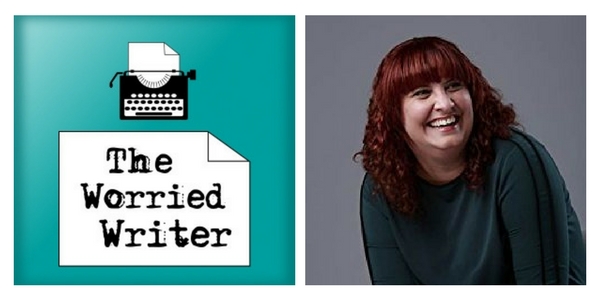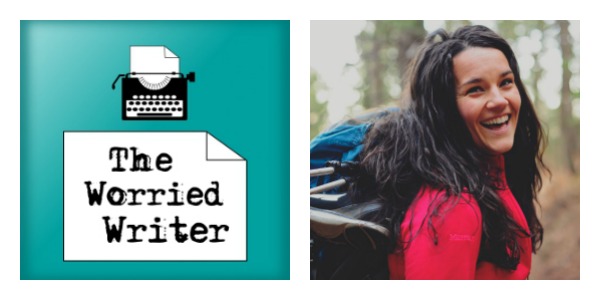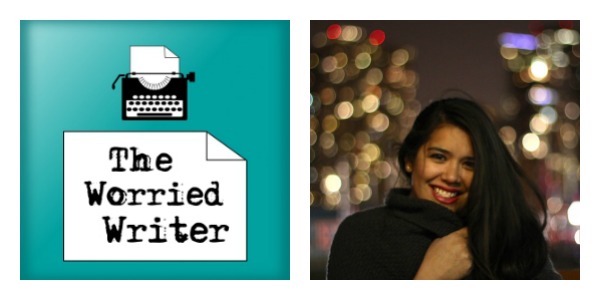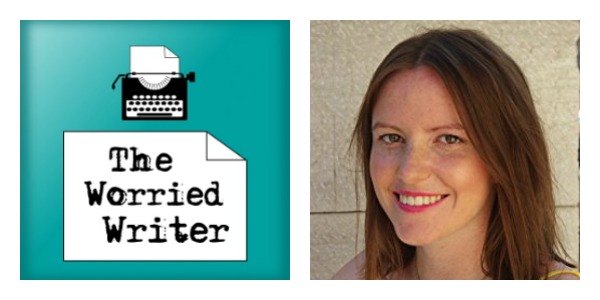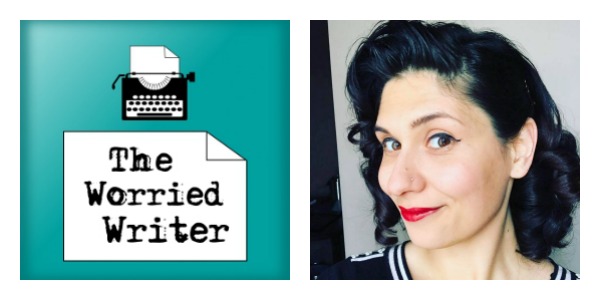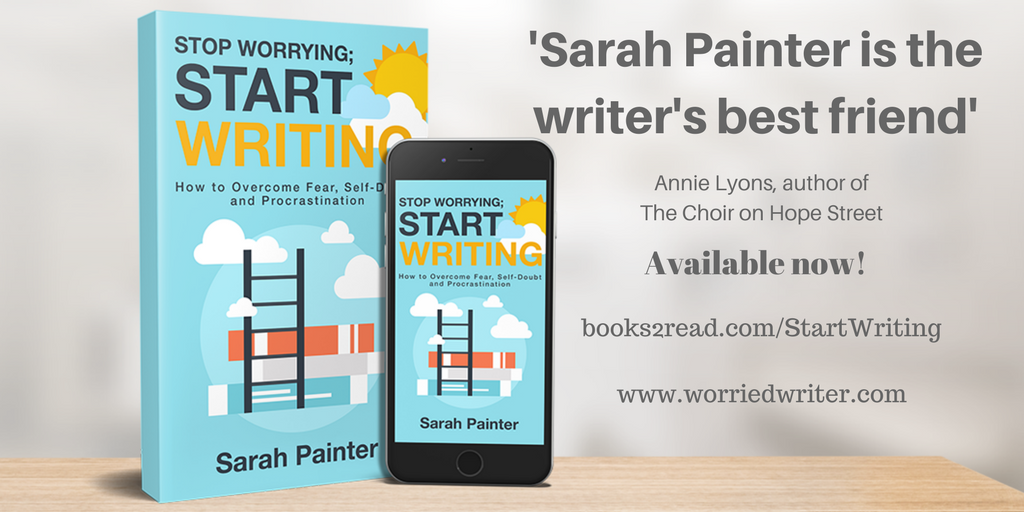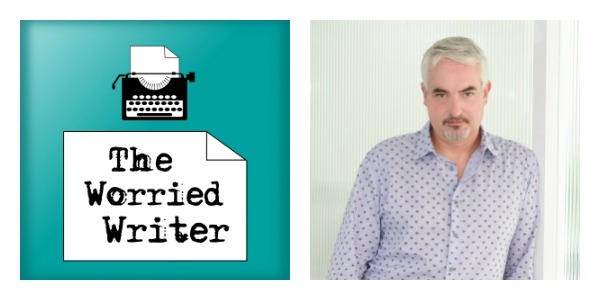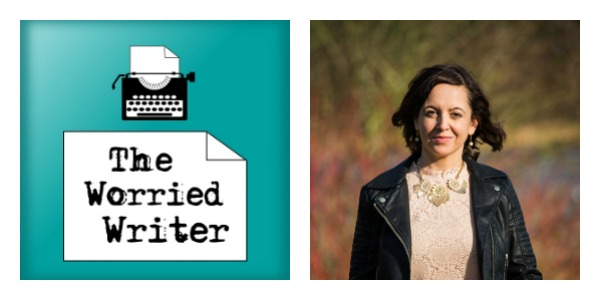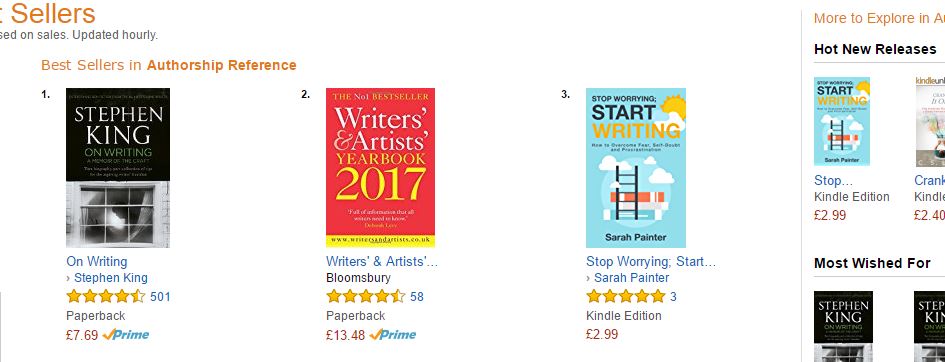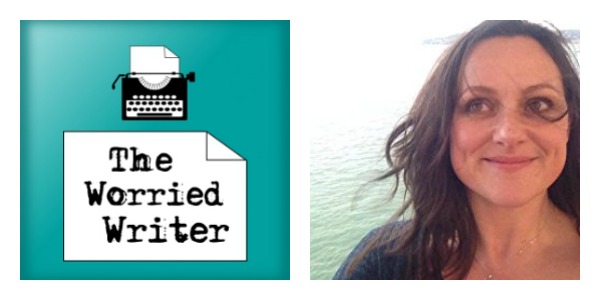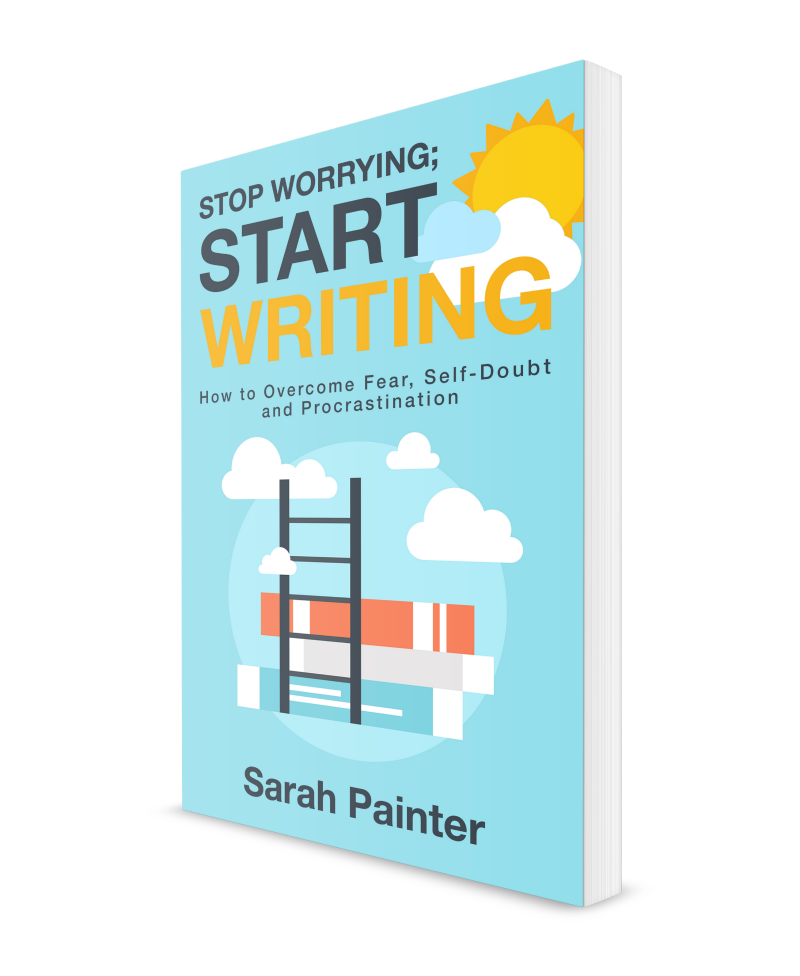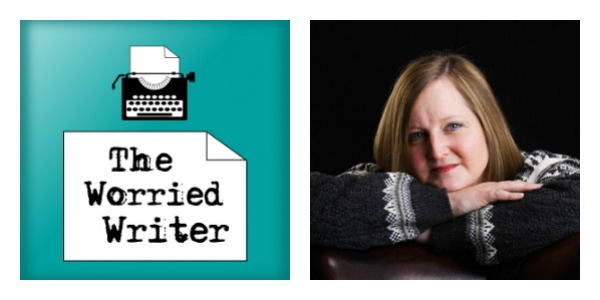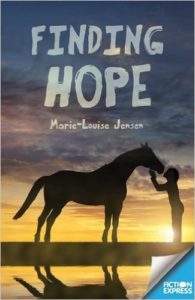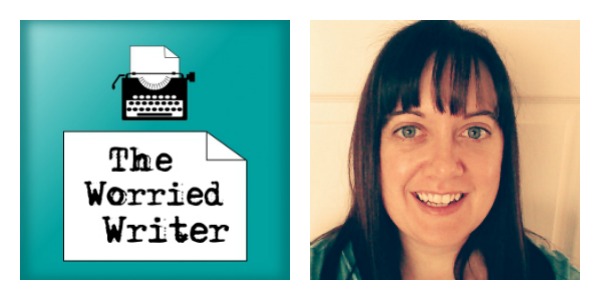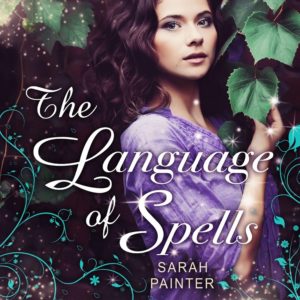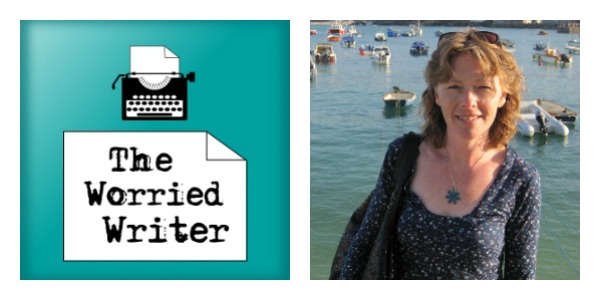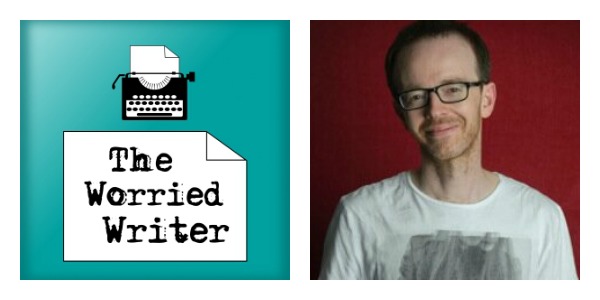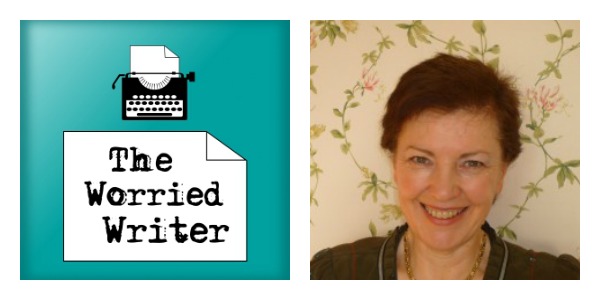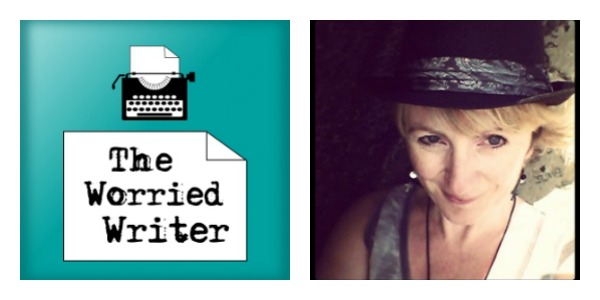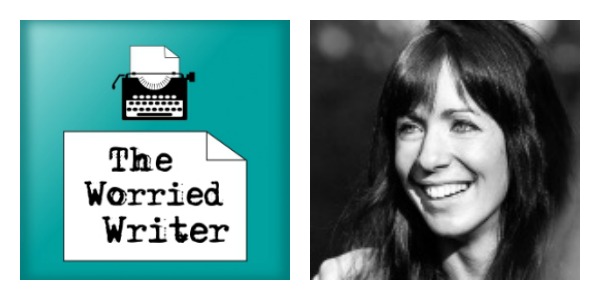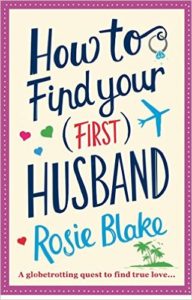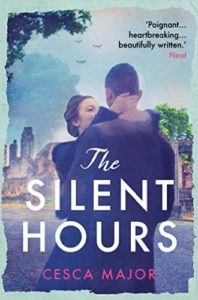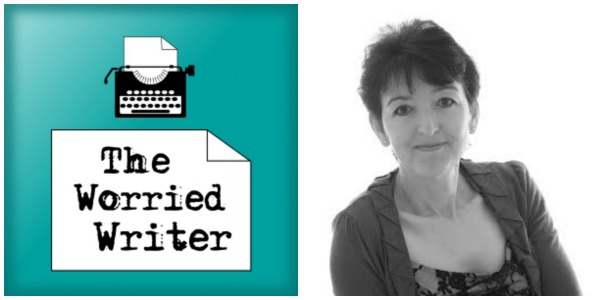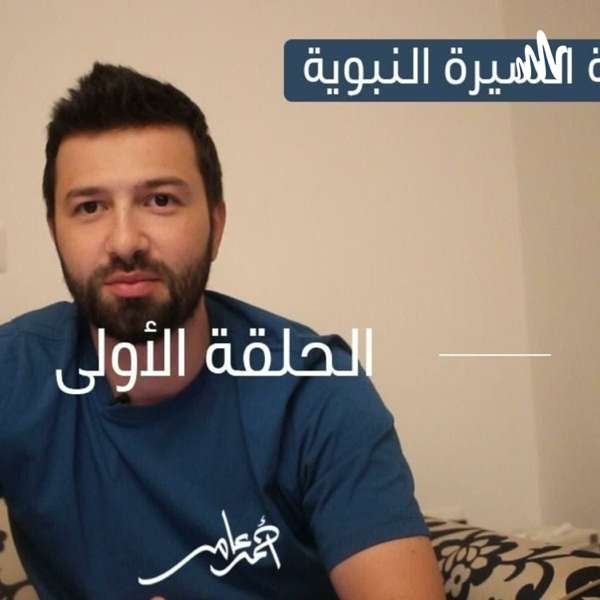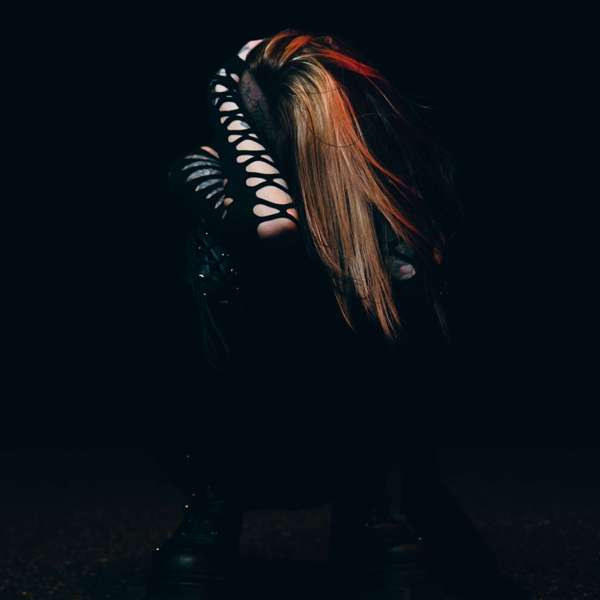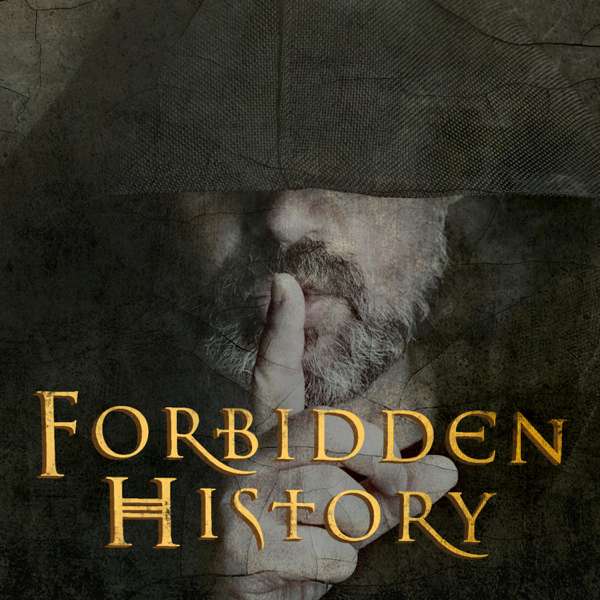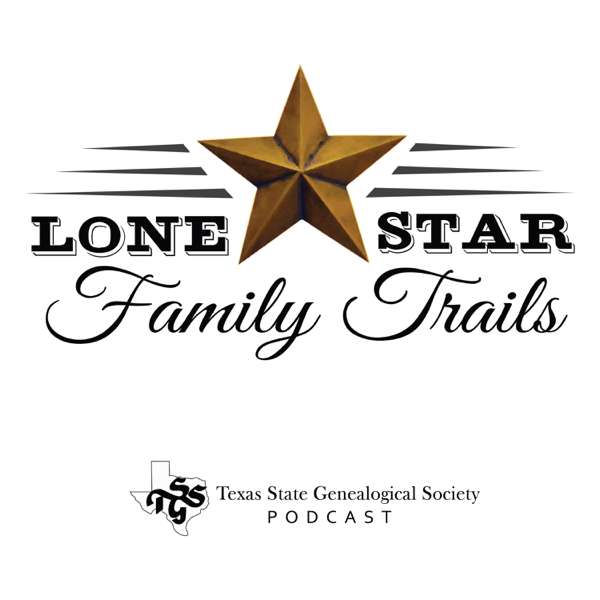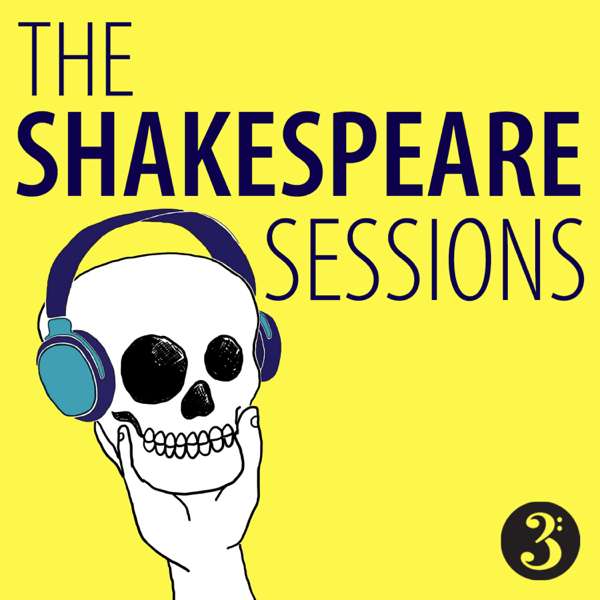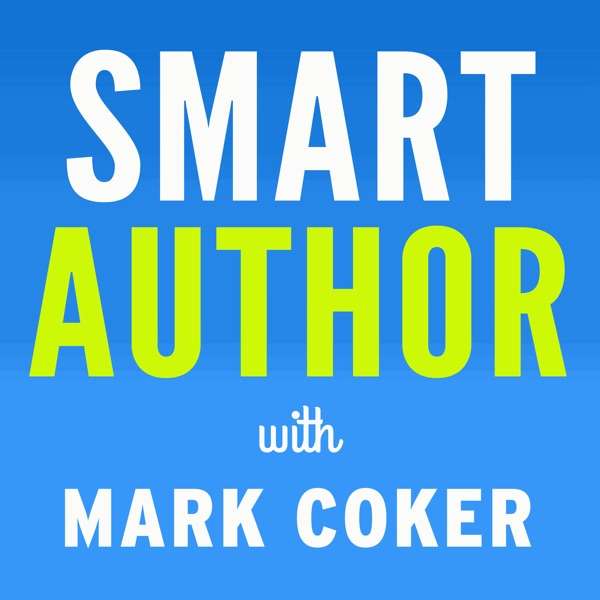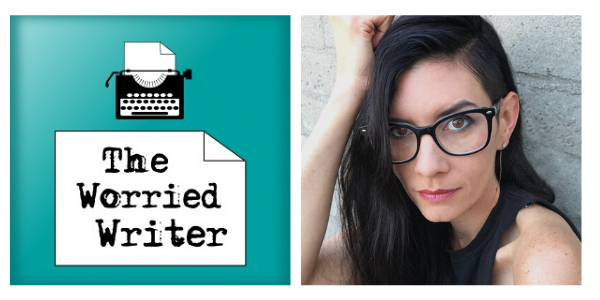

 Wendy Heard is a thriller author with two novels out from Mira in the US. Hunting Anabelle, a serial killer thriller, and The Kill Club.
Wendy Heard is a thriller author with two novels out from Mira in the US. Hunting Anabelle, a serial killer thriller, and The Kill Club.
She co-hosts the Unlikeable Female Characters Podcast in which feminist thriller authors discuss female characters who don’t care whether you like them or not.
For more on Wendy Heard and her work, head to wendyheard.com or find her on Twitter, Instagram or Facebook.
For the Unlikeable Female Characters Podcast head here or search on your preferred podcast app.
THANK YOU!
 As ever, huge thanks to everyone supporting the show on Patreon. Thank you so much!
As ever, huge thanks to everyone supporting the show on Patreon. Thank you so much!
Join our growing Patreon community at The Worried Writer on Patreon.
I love creating the podcast but it takes a significant amount of time (and money) to produce. If you want to help to keep the show going, please consider becoming a patron. You can support the show for just $1 a month! If you pledge $2 or more, you also receive an exclusive mini-episode that I put out in the middle of every month, plus instant access to the back list of twenty-four audio extras.
IN THE INTRO
I offer words of empathy and encouragement to everyone at this scary time, and remind you to be kind to yourself. It’s quite possible that your brain won’t be able to be creative at the moment, and that’s okay.
I also give a writing update. I wrote ‘The End’ on the fourth book in my Crow Investigations series, The Pearl King, and worked on my forthcoming non-fiction book Stop Worrying; Start Selling.
LISTENER QUESTION
If you have any questions about writing, process, procrastination or the business side of things such as marketing or publishing options, email me, leave a comment on this post, or find me on Twitter.
IN THE INTERVIEW
The full transcript is copied below.
THANKS FOR LISTENING!
If you can spare a few minutes to leave the show a review on Apple Podcasts (or whichever podcast app you use) that would be really helpful. Ratings raise the visibility of the podcast and make it more likely to be discovered by new listeners and included in the charts.
The Worried Writer on Apple Podcasts
[Click here for step-by-step instructions on how to rate a podcast on your device]
Also, if you have a question or a suggestion for the show – or just want to get in touch – I would love to hear from you! Email me or find me on Twitter or Facebook.
INTERVIEW TRANSCRIPT
Sarah: Wendy Heard is a thriller author with two novels out from MIRA in the U S Hunting Annabelle, a serial killer thriller, and The Kill Club. She co-hosts the Unlikable Female Characters podcast in which feminist thriller authors discuss female characters who don’t care whether you like them or not.
Which sounds amazing! Welcome to the show, Wendy.
Wendy: Thank you so much for having me. I’m so excited.
Sarah: Well, I’d love first, if you don’t mind, to hear a wee bit more about your podcast, unlikable female characters. What can listeners expect from that?
Wendy: Yeah, so we’ve been at it for just over a year. It’s three authors, it’s Layne Fargo, Kristen Lepionka, and me, and we talk about just how feminism or a lack thereof shows up in fiction and in popular media, we talk a lot about different characters that are in the mainstream and some that aren’t. Right now we’re exploring different tropes. Like the archetypes of different types of women. Like for example, one that everyone knows is the femme fatale.
Um, and we’re exploring… We just… Actually our one that went live today, it’s called the hysterical woman. And we did a little dive into like, hysteria in antiquity and the archetype of the hysterical woman. So we tend to just kind of dive into that in fiction,
Sarah: That’s fantastic. And how did the show come about?
Wendy: Well, we, we were mad about something!
Sarah: All the best ideas!
Wendy: We were mad about something. Um, it was like when we started emailing each other and then one thing led to another and we thought it would be fun and it’s something that women authors get asked about a lot is the likability of their female characters.
I don’t know if you’ve ever been asked about that.
Sarah: Um, it’s certainly something that author acquaintances have been asked about. And also I have had an editorial comment occasionally along the lines of ‘she doesn’t seem very likable here’. And that makes my hackles rise.
Wendy: Yeah. And it’s, it’s such an interesting thing, likability, like what is that?
And so we kind of wanted to explore that. Like, what is it to be likable and unlikable? Um, and also, you know, it’s that thing where you want to reclaim a word a little bit. Like, is it so bad to be unlikable? Like what is unlikable anyway? Does it just mean. Autonomous. Does it just mean with agency? Does it just mean like a person who has a consistent personality that doesn’t change their personality to adapt to those around them, which is something that women have been taught to do.
So is it someone who’s unhelpful to the men around her. She doesn’t help them feel better about themselves all the time, you know, what is it? So we’ve been ex… we thought we’d be exploring it for a little while and we’re still exploring it about a year later. So there’s a lot to unpack there.
Sarah: And as you said, as you alluded to at the beginning, an awful lot of material as well.
Wendy: Well, and it’s this thing where, you know, we have, I mean, there’s so much, but it’s, do male characters, do male authors get asked about the likability of their characters? Like is Jack Bauer likable? Right? Like, did he have to worry about that?
Like he has a mission to accomplish, but like is he likable? Is he nice? Like, is that something that male authors get asked about their male lead characters, right?
Gosh. Yeah.
And is there some like thing with men where they’re like, ‘she’s not likable. She’s a bad ass assassin!’ you know, ‘she kills men’.
Like, okay, well settle down. You know, what else is there?
Sarah: Absolutely. It’s a wee bit like the strong female character thing. That can be a bit of a trap in that. You know what again, what does strength mean? And if you’re kicking ass, that’s fine. You’re a strong female character, but it seems quite a narrow.
It’s a narrow definition, isn’t it?
Wendy: It’s coded. Right? It’s like when men say like, ‘I love strong women, but I just don’t think blah, blah, blah’. You know? It’s like, it becomes a sort of like first part of a nasty sentence, right?
Sarah: Yeah, absolutely. Oh, fascinating. Well, I am definitely going to be listening and I will obviously put a link in the show notes.
Wendy: Oh, well, thank you.
Sarah: So let’s go back to the beginning. I’m going to ask the usual question, I’m afraid. You’ll be glad to hear it’s not about likable female characters. Did you always want to write?
Wendy: Yeah, I have. Um, I have always gone back and forth between writing, visual art and music. I have a degree in painting.
I thought I was going to be like a a fine artist and I had also started out writing books like right out of college. I took a gap year and I was like, I’m going to write my first book. So awful, but I was like, I was hoping to be like a female Kerouac is what I was hoping. Like I went on like these awful road trips and like wrote these terrible, painful, novellas. That shockingly, nobody wanted to publish. I can’t imagine why. and then, yeah, and then I was in college. I got a, I got an art degree, so I kind of stopped writing and I’ve been playing the guitar since I was seven. I started playing classical guitar as a kid. So I never really was sure which of those three art forms I would sort of land on as my permanent this is what I will hope to do professionally, but it just kind of worked out to writing. And I do miss painting a lot. I haven’t had as much time for it. I definitely don’t mean to like set that aside completely.
Sarah: Well, I’m sure. I’m sure you haven’t. That’s the great thing about writing and I imagine painting is that it is something that you can do… It’s not an Olympic sport. You can do it, which is great. And what led you into writing serial killer thrillers and am I, am I sort of characterizing them correctly?
Wendy: No worries. Yeah. I definitely did not intend to write these kinds of books. I thought I would write literary fiction when I first started writing.
And, you know, it’s actually kinda, it was actually kind of a hard decision because I have a lot of English teachers and professors in my family who are quite… I did not feel necessarily very supported, writing genre fiction, and I don’t have that situation where I have like a super proud family.
You know, some authors have that, like family. I have a friend whose family comments on all of her author posts on Facebook and they’re like, you know, ‘go get ’em honey!’ you know? I think they, they think it’s cool that I’ve published, but I definitely feel self conscious about the type of books that I’ve ended up writing.
It’s just. I don’t know. It’s like sometimes, no matter what you try and sit down to write, a certain type of book comes out. And I have a real love for like commercial pacing and I love mystery and danger and like all those dark things. And so. It’s just the type of story that I enjoy figuring out.
It’s almost like, writing mystery, it’s like you’re playing chess against yourself, you know? Cause you have to set up what’s gonna trap your hero and then you have to try to get them out of it. And I have this thing I love to do, where I’ll write my main character into a corner, but I won’t plot out act three so that I’ve truly lost as the main character and I really have to figure out how to get out.
And I honestly don’t know how they will. That’s really fun, you know? And I kind of fell in love with it. But yeah, I definitely didn’t intend to. And I find things about the genre a bit limiting and frustrating sometimes. So it’s definitely not the only genre I ever want to write in.
Sarah: Mm. Well, that’s fascinating. And I’m nodding away, because I very much had the same sort of, um, I hope you won’t mind me saying hangups about I wanted to write, you know, I thought I was going to write literary fiction. I kept trying to, and I did a masters and I realized that I was really trying to please everybody else. And it was when I sat down and wrote something just for me that I wrote a readable book.
And so, yeah, sorry, just nodding away, total agreement. But I, I also think. Have you, you know, you said you have always enjoyed sort of mysteries and so on, and I did wonder about you picking the sort of darker side of fiction. And I think that reading dark or scary fiction can give us a sort of catharsis and also lets us explore maybe our fears, but in a safe way.
And I just wondered whether you think that’s true of writing it as well, or if that’s true for you.
Wendy: Wow. So I’m, so this is one thing I really wanted to talk about with you because this is something I’ve really enjoyed about your podcast, is being able to unpack these types of emotional components to writing and like, why we do this.
So I wanted to tell you this. So when I was researching Hunting Annabelle, which is a very psychological, like the main character has a neurologist for a mom, a neurosurgeon, and sees a psychiatrist. And the book is, it was a lot of psychological, and psychiatric research because he has some very specific mental illnesses that I had to research to get right.
Anyway, so I was interviewing a clinical psychologist, and she started talking about anxiety and dark fiction and she said one treatment she recommends for anxiety is to either go on a roller coaster or watch something really scary or read something really scary because she said, what happens is your body gets stuck in the first part of a stress cycle, like of a running away from the enemy stress cycle, and you have, it really helps your body if you help it finish the stress cycle.
So watch something where there’s a resolution. Let your body go through the whole cycle of anxiety, and then at the end you’re done. And so she said, here’s some things I suggest. And then she said, for writers of it, she always thinks, and she said this, and I’ll never forget it, she said it’s the familiar darkness, but this time I’m in control.
And so she said it’s.. For writers it’s going into a place, an emotional place that feels like a familiar, scary place for whatever reason, but taking control back and now you get to write the story, which I found really kind of like, I was like, can’t wait to tell you this!
Sarah: Oh, that’s amazing. And that really, really resonates as well.
Thank you for sharing that. That’s really interesting. And I also, I’ve never heard, I haven’t heard the completing the kind of fight or flight reaction in that way, which again, that makes so much sense. Yeah, that’s really interesting.
Wendy: Yeah. Shae said it’s like you start spinning and you’re that person, you have a brain that doesn’t know how to stop on its own.
Whereas most people can feel anxious about something, and then their brain knows how to, once that threat has passed, that anxious moment has passed, they know how to just move on. They don’t need help finishing that cycle.
Sarah: Oh gosh. And so is, did it resonate with you when you were, when you heard that, is that something that you’ve kind of experienced with exploring the darker side?
Wendy: Actually, yes, because I realized… I have a real problem, like I don’t like to sit down and write a scene unless I can finish the scene. It makes me really unhappy to like leave a scene halfway. I know people who can do that. They can just drop pieces in and then like I’ll come back to it. But I really can’t. I have to finish the scene.
And when she said that, I was like, that makes sense. That’s probably why I really hate, I find it really uncomfortable. Like, I don’t know about you, but if I start a book, I’ll just read it straight through. I will binge the book until it’s done. I don’t like to feel like it makes me feel uncomfortable to leave partway through and I have anxiety, you know?
And so that really made a lot of sense to me cause I’m like, yeah, that’s probably why I will obsessively watch a whole season or read a whole book or listen to the whole audio book while I’m doing everything, right. Cause I need to finish that cycle. I don’t know how to finish it on my own.
Sarah: Yeah, that makes a lot of sense, absolutely. Another thing that I was thinking about in terms of of writing darker things is something that a lot of us struggle with is a kind of fear of judgment when we’re writing. And you know, you can have that feeling of, Oh, is this a bit too far, or is this a bit too emotional? Or, you know, is this too soppy or whatever?
And I, I, it occurred to me that maybe writing in this sort of darker genre, did you ever have a fear of judgment of, that’s too much, that’s too horrid, that’s too, uh, too revealing. You know, that kind of, Oh, everyone’s going to think I’m a sick puppy. Is that something that you’ve ever struggled with?
Wendy: I still struggle with it. I mean, I still wish that I had a different name at work than I do in writing. I didn’t, you know, I didn’t really think about this like, I did not think this through. But yeah. You know, it’s not, it’s not my favorite thing when people find out that I write books that I know in person, because then the next thing is, Oh, what is it called? And I’m like, it’s called The Kill Club. You know? I don’t love, I don’t love that. It’s embarrassing, a little bit, like I do feel a bit ashamed sometimes, but I mean, at the same time, anyone who knows me, it makes perfect sense. So it’s really just that like out and about. I don’t know about you, but like, it’s already hard trying to reconcile your various identities.
You know, you’re a mom, you’re a, you know, a worker, you’re a writer. And it’s like those are all parts of you and it’s hard to sometimes reconcile them with each other. So yeah, it is. It is difficult. I do feel embarrassed about it, and I do feel. I didn’t feel with Hunting Annabelle totally free to like unpack the full darkness of that story until I got it agented and my agent was like, we’re going into act three and you’re going to go all in.
You’ve got to stop worrying and just go in. And so I actually did like rewrite the last third of that book. Because she did feel like I was censoring it a little bit. Yeah. So I’ve had to be told like, you’ve got to go. And then after that I learned how to just like stop worrying as I’m writing and be like little more punk rock.
With The Kill Club, I kept having to tell myself, you’re going to have to be a little more punk rock if you’re going to write this book well. Like you’re going to have to just stop caring what people think and just write the story. But it’s not easy. I don’t know if it’s easy for you. It’s not easy for me.
Sarah: No, not at all. Not at all. I was going to say I think, I imagine whatever the genre is cause we write in different genres, I think there is that fear of judgment. There’s that fear of embarrassment. And the first couple of years or the first year after being published and meeting really lovely, supportive, kind folk at the playground gates picking up my children from primary school or whatever, and then chatting, and then they would say something about, Oh, you’ve written a book, or I’ve heard you’ve published a book. And, and the full body cringe of just embarrassment and shame and, there’s no real logical reason for that, you know.
Wendy: I try to like, it’s like emotional nudes. It’s like if you have naked photos out in the world that were taken of you when you were like 20 and those photos are just everywhere, and you know the second someone Googles you, they’re going to see you naked. That’s kind of what it feels like.
Sarah: So right! They are a snapshot of a, of a moment in time as well. You know, the book that I wrote in 2012 I wouldn’t necessarily, well I wouldn’t write it the same way because I’m a different person and it’s a different time. So it is also like say a sort of snapshot.
That’s a really, really good way of putting it. So your debut came out in 2018 I believe? So all of this kind of exposure, if you’ll forgive the term, it’s still quite new. It’s still early days really. I’d love to hear about your path to publication and kind of how that, how that all went for you.
Wendy: Yes. Well, you already know about my terrible early writing. Writing these awful, very self-congratulatory, novellas. Like I used to write them on trains. I just can’t, uh, but that was like 20 years ago. Right? So
Sarah: You were allowed!
Wendy: Yeah, it took a long time. I mean, I did set it aside a few times. I’d write something, set it aside.
I really picked it up back again in earnest in 2010 after having put it aside for like a good five years. And then I really was like, we’re doing this. Like, we’re doing this, we’re doing this. And I wrote, I just started writing. And I think I wrote, from 2010 to 2016, wrote four books. They didn’t get published and then Hunting Annabelle was the fifth that I had written since I had been back. So I’ve written a total, I think Hunting Annabelle is like my seventh book that I’ve ever written. I submitted it to agents for a while and it didn’t get picked up, and then I broke, this is kind of interesting, I broke a lot of bones. This sounds weird. I took a fall and then I took another fall, so I ended up with a broken wrist and a broken hip on the same side of my body, so I could not use the left side of my body for three months. So like, if you could imagine I couldn’t wheel a wheelchair because of my broken wrist, but I couldn’t use crutches because of my broken hip. And I was like stuck in the house alone for like three months.
And I rewrote Hunting Annabelle. And I put it back out to agents and then it got picked up. So that was the version when I was like… So that’s what you said, it’s like a snapshot, like there’s a reason it was a dark story. I was in a really dark place when I was re-writing that book. Like that was a very hard time.
I was stuck alone inside for months, and I could only use one hand. So I actually like rebroke my wrist writing Hunting Annabelle. I had it in a cast and I, they gave me like a soft cast and I told them, you’re going to want to put a hard cast on this cause I can still type with this thing on. They said, just be careful, you’re fine.
But I have this weird pain thing where I don’t feel things. I have like a very strange pain tolerance thing. And I did a rebroke my wrist writing Hunting Annabelle and had to have it reset and now there’s a plate in it.
Sarah: Oh my goodness. Well, that’s full on. I was going to say, you are very rock and roll. You definitely win the Worried Writer punk rock writer award, but ouch! My goodness.
Wendy: After all that, when Hunting Annabelle finally got a book deal, I got the largest tattoo I can’t explain to you, my whole back is like covered with this tattoo that I got. Cause I was just like, we’re going to get a, we’re going to do a very punk rock celebration of this extremely punk rock thing that happened.
Sarah: Oh well when you, when you were sharing that you’d written a few books before you got your, got your agent and got your deal, I was thinking wonderful, again, thank you for sharing that cause I always want people to know it’s completely normal to have to write a few books and seven is like the average number.
So I was thinking, Oh, look at that, Wendy’s bang on average in her number of books, and then you went all punk rock and broke your wrist and your hip and rebroke your wrist and not average at all. So
Wendy: I should tell people that every time they send me a bad review of Hunting Annabelle, it’d be like, do you know what I did for this book?
Every time someone tags me in a bad review.
Sarah: Oh, absolutely. Oh my goodness. So you got your agent, you worked on it editorially with her and rewrote it, and then you got the deal with MIRA. So that must have felt amazing.
Wendy: Yeah, that was really great. It was very surreal and you know, it was, it was awesome. It was a very, like, I don’t know if you’ve ever had those moments where it’s such a big thing that you can’t react. And my agent was like, this is a really good thing. This is a big five book deal. This is exciting. And I was like, yes, it is. I know. But it was just at the end of such a long road that I think the most overarching emotion was just relief.
Like, because for so long it was like, Oh, she’s trying to be a writer. I wonder when she’ll give up, you know, kind of a feeling. So I was like, thank God, at least this happened, you know?
Sarah: Absolutely. No, I totally relate to that. So it was a two book deal or..?
Wendy: Yeah, it was a two book deal. I’m off it now, so I’m going back back out on submissions.
So it’s like starting over, right? I mean, I think people think that once you publish once, it’s just like a dominoes, right? No. Like you finish your book deal and, you’re back out on submission like the first time, right? I have a third book coming out. It’s a young adult, so I’m starting a new young adult brand, and that’s with a different publisher, so like, I’m not, you know, I’m not saying like it’s, nothing’s going well, but I’m just, I think people should know that like, just because you’ve published one or two, I mean, each time it’s like being freelance, who knows if you’ll sell another one.
Sarah: Oh, absolutely. And I coped with that reality very poorly. How are you coping with that?
Wendy: Not too good. Actually. Yeah. Cause we see these like success stories of people who just seem like: it is dominoes, right? It just, it looks like that from the outside.
Sarah: Absolutely it does. And there’s no sort of set career path. There’s nothing, there’s an awful lot of smoke and mirrors. And so all you can do is compare the outside of other people’s success and generally only a handful of successes because those are the ones that we hear about. So it really skews it. But I, I definitely found the uncertainty and the knowledge that my, my writing career was in other people’s hands, and that I was going to have to go through the whole submission, rejection, and I could write a book, I could spend a year writing a book, and then…
Wendy: Nothing.
Sarah: Nothing. So yeah, I, I coped poorly, so much empathy.
Wendy: How are you doing now? How do you handle it now?
Sarah: Well, what I did, which I know isn’t for everybody, but I put my business brain on and I went hybrid. So I do independent publishing, alongside it, alongside traditional, and it changed my life. I am now a very happy, very happy writer, and I can also support my family.
So for me it was absolutely the right decision.
Wendy: I think that’s a really interesting, yes, I love that because I think you’re right. Like I was talking about this with my, actually my friend Layne who, we do our podcast together. We both talk about this like. We’re both career women. You know, we, we’re, we’re type a, like, we like to get stuff done and it is really frustrating to think about writing a book for a whole year.
It doesn’t go because that’s not what publishing is looking for. Is there something else we can do with these lost books? Like, or is that just too much time spent marketing to be worth the return? I mean, that’s because I have a lot of friends who self publish and it is like many, many hours. That’s like, I have a friend who it’s like she has a full on degree in marketing, I mean, right?
Sarah: I, yeah, I’m, I’m definitely still figuring marketing out, but I don’t spend any, I don’t spend a great deal more time marketing for my independent books than I do for my trad books. Cause there’s still a certain amount of marketing you have to do. You know, unless you, again, unless you’re one of the real headline success stories, lead titles for a publisher. So, but yeah, I mean, I’m fully aware that it might be skewed for me now because I’ve got used to doing it. So what I really like is that you can do the marketing that works. When you’re doing marketing for your trad published books, there’s lots of sort of raising awareness, there’s lots of things that you can do, but you’re not really sure how effective they are and so on. Whereas with the books that I control myself, that I published through my own imprint, I can put an advert on those and I can see that that advert is converting and that I’m making sales from it.
And so, funnily enough, I don’t really mind spending the time to set that up because I know it works.
Wendy: Yeah.
Sarah: And I see the results. So that’s how I kind of see it really is that now I’m in control.
Wendy: I think we’re all really interested in… I think it’s important to talk to people who want to be authors about the different models, you know? You don’t have to choose between self-published and traditionally published. You can, you can, like, I have always thought that I have a thing where I want to write speculative stuff and I want to write like weird, speculative stuff. You know what I mean? Like I have just like the desire to write about like historical vampires sometimes.
Stuff that it’s not going to get picked up by anybody. Right? Like, so I have always thought, eventually I’d love to do a second brand. Either under a different name or same name, different brand, like you know, maybe it’s find a little tiny imprint who would be willing to let me do my, my weird ones.
Sarah: Or start your own imprint as we were just saying, because that’s, I mean, that is the other thing about it that’s really helped me is that freedom that I don’t have to wait for permission from anybody to write whatever I want. Yes, I know, I know that if I write something really off brand and maybe more niche, I’m not going to make much money doing it, but no one gets to tell me that it doesn’t get out in the world? That I’m not allowed, that it doesn’t go out in the world.
And that has been very, I mean, just hugely empowering. So yeah, I love it. Anyway, I won’t derail this. You got me started, and I’ll go on like this!
Wendy: No I think that’s good, and I think it is like, I think, I don’t know about you, but there’s a reality check moment in publishing traditional books where, so like behind the scenes if it’s okay for me to like quickly… but like, let’s say I want to go on submission for a book and I have to send my agent a number of ideas and she’ll pick the one that’s the most, that’s the most viable, you know, for example, I just as an example, a podcast thriller has kind of hit really hard: Sadie, and there were a couple of big ones. Yeah, so anyway, there’s like a, there were like three big ones that came out in the space of a year and a half. So if I had been wanting to write a podcast thriller, unfortunately that space is a bit crowded, right? So not that there’s any, not that your agent is sitting here, uh, censoring you and policing you, but your agent’s job is to try to sell your books.
And so he or she is going to take a look at the ideas you have. You’re going to run ideas by them. What should I write next? You know, and they’re going to say, okay, how about, why don’t you write up a pitch for like these three? I’d like to see a little bit more info on these three. So you put going to put a pitch together and they’re going to say, okay, I think this one’s your best bet and you know you’re going to send it out and like she’s going to find, try to find an editor that is interested in books like that, and then that editor might be like, yeah, I am interested in books like that, but I’d actually really need it to be like this. The idea that you’re just writing a book and selling it is not the reality of being a working writer.
You’re really, or if you’re writing a book on like a two book deal, and you already have a book deal, but they have to hear your proposal. I have a friend who went through seven, seven proposals before they picked one for her book two.
Sarah: Oh boy.
Wendy: You know, I mean, it’s just like you don’t, you got to tailor it to your editor’s taste, to what your imprint is looking for.
If they have another book similar coming out that same season, you’re going to have to pick another project. It’s not just I write the book I want and I put it out there. So as you’re saying, I think having an outlet for that freedom of creativity, it sounds really appealing.
Sarah: And you can also move more quickly as well, because as you say, with the traditional route, like say you’ve got your agent, and then it goes into submission, and then if it gets picked up, the lead time, as you know, in traditional publishing is very, very… it’s quite long, you know.
Wendy: Forever! My young adult book comes out in about a year and I got that book deal like over a year ago. It’s like a two and a half year lead time on that book. It’s fine. It’s just how it is.
Sarah: And that’s why it’s not generally viable to, you know, to make a full time living with trad only. Even if you make it, you know, even if you have a really good advance because of all that time lag. So, yeah, so I definitely, well I highly recommend it!
And in terms of writing the second book, again, sort of, we’ve talked a wee bit about that kind of pressure, realizing that there’s still more rejection and submission to go and so on. How did you find writing the dreaded second book?
Wendy: The second book is really tough, so you’re writing it and you’re marketing your first book, and you do not know what the hell you are doing. Marketing your first book. I mean, you’re doing everything and nothing at the same time. Like you’re doing all the stupid things you shouldn’t be doing, wasting your time, and you’re not doing the things you should have been doing in retrospect. You know, it’s not, there isn’t a blueprint for how to market a book. Yeah. Everyone has, you have to try on a couple of different books and publishing as very little like leeway for failure. If your first book doesn’t hit, it’s very difficult to get people on board with similar books coming out after.
So there’s a lot of pressure on that first book to hit and to do pretty well. So that pressure you’re feeling on your first book, while that panic you’re feeling of not knowing what you’re doing, especially for somebody who likes to know what you’re doing, and then trying to be creative and write the second book, that’s the right followup, that’s in a similar world, but something really fresh and exciting and to do it in like six months, right, is a whole hell of a thing. I thought writing The Kill Club was going to actually kill me, but I had my aforementioned tattoo artist tell me something that I never forgot, which was, he said, sometimes I do my best work when I’m under pressure though, because I can’t overthink it.
And I was like, all right. All right. And that did help me get through it. Actually, just remembering that line, I was like, all right. All right. All right. Because I kept thinking, I’m not going to do good work right now. I’m too stressed.
Sarah: And also sometimes, I mean, people work on their book that gets them a deal, a lot, and usually for at least a year. And then if you’ve got a short, a shorter time to write your second book, there is also that anxiety that you just don’t have enough time to properly percolate and do a good job, but it’s not true. You know? Writing under pressure, writing quickly does not equate to writing poorly.
Wendy: In some ways it does. Like there’s a lot of stuff, like at the line level in The Kill Club, there’s a lot of things at the line level I wish I had more, had more time to change. It was my first time writing under deadline and I think, I think it’s, it’s like I wrote a total of eight books at that point. Only one of them got published, so I kept thinking. What if the one I’m working on right now is like one of the former eight do you know what I’m saying? Like maybe I could only do it once. Maybe I don’t have another good book in me. Maybe that was like a fluke. I think I hear people think that a lot.
Sarah: Oh yeah, no, definitely. That’s very familiar. For some reason we don’t equate writing those books beforehand with practice, as we would perhaps when you were learning to paint or learning the guitar as a, as a child. You know, it would be like playing a guitar piece really well for the first time and saying, well, that’s it then. I will never be able to play like that again. That was the one time.
But somehow with writing, that’s what we do. It’s, it’s very odd. But yes, you’re definitely, you’re definitely not alone!
Next off, I really wanted to delve into the kind of nitty gritty of your writing process and your kind of how you fit writing in around work and all of that.
But, we chatted about this a wee bit before we came on air, but I am aware that we are currently, we’re chatting during a global pandemic.
Nervous laughter…
Wendy: Everything’s fine, everything’s normal!
Sarah: Everything’s fine. So. I don’t mind at all if you want to share your usual process for writing and getting writing done, or if you want to chat about how it’s affecting you now I don’t mind.
But I just wanted to acknowledge for the listeners that this is when we’re recording it. So if we sound slightly manic…
Wendy: Unhinged …
Sarah: Unhinged! That’s why!
Wendy: Yes. Well, okay. So. I have, I feel like we need to hear more authors say this, but I have a full time job. Most people, it’s like, it’s almost a matter of, admitting failure to say I have a full time job because it makes you seem like you’re not a real writer or you’re not one of the chosen few or something like that.
But I have a mortgage and I live in Los Angeles. So unless I’m about to start selling four books a year and someone’s going to bestow free healthcare upon me, I’m going to continue having to have a full time job. So I have this full time job and I have a kid. And so writing is something that has been fit into the crevices of that.
So anytime my daughter is in, she does competitive gymnastics, which is kind of a new thing, but she does that, and I’ll write in the parking lot while she’s doing that, or on the weekends, I usually wake up at five or six and write for a couple hours before she’s up and she needs me. If she’s on a play date or if she has like a friend over or a sleepover, I’ll take advantage of those hours to write. So writing has become sort of the thing I do instead of hobbies and instead of social life, that’s just the reality of it. You know, you can’t do everything and you have to choose what’s most important to you. So I try to have chosen writing as the thing that’s most important to me right now.
Although I can sometimes go too hard. I forget that it’s also work and that my brain needs breaks and that I, I do tend to work really hard and burn myself out. So my new goal is to like allow myself to not burn out. And if that means I have to sleep in until 6.30 on the weekends! That sounds crazy, but like for a long time, I’m waking up at five o’clock on the weekends cause I’m like, that’s valuable work time I could be doing. And eventually you kind of run, you kind of wring yourself out and you start losing some of the love for it.
So I’m trying to, I just released a book a few months ago, so I’m trying to now, I dunno, reclaim a little bit or let this be a season where I’m just writing and being creative and I’m not as hard going so hard with promo. So it’s like cyclical, I guess seasonal few months before your book comes out, all you’re doing is promo. I mean, you’re just, there’s no creativity. There’s just all promo, right?
Sarah: Oh yeah, absolutely. Yeah. Were MIRA very good and supportive with that?
Wendy: Yes. They’ve been great. I have a publicist that I absolutely love working with. My editor has been amazing. I’ve had two editors and they’ve both been wonderful, so I’ve had nothing but good experiences and I’ve met a lot of really awesome writer colleagues through that imprint, and I’ll be really sad if we don’t get to keep working together as colleagues, you know, just because I think I might end up on submission elsewhere. We’ll see. But I still feel like there’s so much that you have to do as the writer.
I mean, if you’re that mid-list author who’s… Unless you’re, like you said, in the top 1% 5% right, where they give a, they give a huge, a huge advance, they’ve got a lot of money invested in this, and they’re going to make sure it hits list. Unless you’re that person, you’re doing a lot of your own promo.
You know you’ve got to hustle. You’re getting out there talking to book bloggers, you’re on Bookstagram. You’re trying to maintain your social media presence in three different places. You’re having an author newsletter. You’re, I mean, you’re doing interviews, you’re doing like little think pieces. I mean, everything, right?
Sarah: Yeah, it is. It’s a lot. It’s very overwhelming. And I don’t know if you found this, but I find it quite hard to write when I’m very outward facing.
Wendy: Absolutely.
Sarah: Kind of, I need to feel like everything’s safe and private when I’m writing because I’m pretending no one will ever read it.
Wendy: That’s right.
Sarah: So that’s tricky too.
Wendy: And then release season, I think there was one month where I had like seven essays, that I wrote in one month. Right. So it’s just like, when am I going to write? Like I’m writing, you know? Right.
Sarah: Yeah. No, that’s really tricky. But I’m, I’m glad that you had a positive experience with MIRA. That’s really great to hear. Again, not everybody does have a positive experience, regardless of the publisher for various reasons. So, that does sound positive overall, but there’s still something about… it’s something you want for so long, and then you step through that doorway to the magical land of the published, and it’s another set of steps. It’s another…
Wendy: That’s right. That’s a great way to describe it. That’s perfect.
Sarah: But it’s very hard to come to terms… I found that emotionally difficult to come to terms with a wee bit. I still didn’t feel like a real writer and that was a struggle.
Wendy: Yeah, what’s up with that? I still don’t feel like a real writer.
Sarah: Imposter syndrome. It’s so hard – just kicks us.
Wendy: You think if I just can do this, and I think that’s what keeps… What keeps killing us because once you’ve published and then you’re like, well, I didn’t get a starred review. I didn’t get into, I didn’t get a review on the New York Times, or I didn’t get, I didn’t hit the list, or I didn’t hit this list, or I didn’t get the Amazon orange banner or whatever.
I’ve heard all the things that people hold themselves to, right? Like, I didn’t get invited to this conference or I haven’t been invited to this thing, like a goodreads choice, like whatever. I didn’t get this award. Like there’s such…
Sarah: It’s endless isn’t it?
Wendy: Yes. I can’t imagine a world in which I could ever accomplish the things I would need in order to feel like a quote real writer.
Sarah: Yep.
Wendy: Again, unless you’re that unicorn. Who, that one person who like for example, Casey McQuiston who wrote Red White and Royal Blue. Did you read that one?
Sarah: I heard of ii, but I haven’t read it.
Wendy: Okay. It’s like, that’s like a perfect example. Like she hit every list. She did everything. I mean, you know.
Sarah: Mmm, but I mean, I think one thing about doing this podcast that’s been very healthy for me is that I’ve spoken to people who I consider unicorns and they still are filled with self doubt and imposter syndrome.
Yeah. That has really helped, but that’s it. Nothing else.
Wendy: That’s true. I have friends who have had all those things. I have a good friend. She’s like the, so successful, I mean. She’s just like huge. And if you talk to her, she’s like, well, I’ve never gotten a starred review. I’ve never, you know what I’m saying?
Like, I haven’t hit the New York Times, but you’re selling crazy. Like your books are everywhere, like you have a book deal every time you want it. You know? It was like, you think you think that it would be, but no, you’re right, still.
Sarah: So from imposter syndrome to just our old, our old friend self doubt.
So obviously title of the podcast is Worried Writer. Do you ever have sort of struggles or creative block when you’re actually writing? And if so, what do you do to keep going?
Wendy: Very much so. Extreme so. I like. This last one, this debate of like, what am I going to write next for my adult book to go on submission?
You know, it really has to be perfect. Do I want to pivot at all and change my brand up a little? It’s a good time to do that if I’m going to, cause I had a two book deal with Mira and now I can change it up if I want to a little bit. And so, um, then at the same time, that self doubt that comes with not already having something promised.
I have found that it’s been very difficult to write, and it’s not the first time I’ve dealt with that. I’ve dealt with writer’s block a lot. I don’t know anyone who’s struggled with it more actually. Um, it’s a real problem for me. I think sometimes it takes me a long time to be able to just sit down and to get up enough confidence to even just sit down and start writing is very difficult.
Unless, unless someone has me on a deadline, in which case I’m just like, it’s like homework. I’ll force myself to do it. But if I’m not, if I don’t have a deadline, if I don’t have a book deal with a deadline, I can get inside my own head and I’ll really struggle to write at all. Everything seems wrong. I keep hearing all the criticisms that people might have or that might cut like, I don’t know, just get in my own head so bad with it.
How do I get out of it? What is my solution? You know what? I think sometimes I just have to be patient with myself and just like give myself space and time to feel excited about the project again because once I start feeling excited about writing something, then I’ll do it whether I’m upset or not, you know?
If I’m excited about it and I can picture it in my head and then I start getting sucked in, then self doubt won’t get me, you know? So I try to like use playlists a lot. I’ll try to listen to songs and be like, okay. What’s the perfect song for the scene? What’s the perfect song for this character? And I’ll listen to it and that will help me get excited about it again and be like, okay, I can really picture this.
Okay, I can write this and I’ll start feeling a little more confident again.
Sarah: Oh, that’s fantastic advice and thank you for sharing that as well. I don’t wish it on you, but it’s always very reassuring to hear that we’re not alone in our self doubt.
Wendy: That’s very true. It sucks. I feel bad for all of us that are struggling.
I can’t…, and it’s funny, I hear my friend Layne’s voice in my head being like. How many mediocre men are out there just writing because they’re like, this is amazing. I’m going to do this. You know? Be like that guy. Just believe in it. Believe in yourself.
Sarah: Yeah, absolutely. I mean, absolutely, and another thing that I’ve been, that I’ve been working on is I, I’m not going to say what I actually say because I tend not to swear on this podcast, but I say it’s just a … book.
It’s just a swear word book. And I, I mean obviously that, you know, I enjoy a bit of swearing for stress relief, so apologies if that offends you. But, for me, I just… Just that, that thing of it, it just, that really helps. So it’s not a very evolved mantra, but it kind of helps me to remember that it is just, it is just a book and it’s not life or death.
It’s just a story. That’s it. You know? And if I wrote a really bad story, if I wrote a bad book, the sky isn’t going to fall in, you know, it’s fine. I’m not hurting anybody. It’s fine. And so that’s been my recent thing of just trying to you know, leaven the weight of it a wee bit because as you say, when we get in our own heads, it can really feel like the most important thing, because it’s important to us. But nobody else cares!
Wendy: I used to write really bad poetry and like little stories when I was a teenager and I never worried about if they were bad because I wasn’t ever going to show them to anybody. So it was just like, and that energy is the energy that you really have to take into a first draft and just write the thing that makes you happy or that makes you feel something and then clean it up later, fix it later, and make it, make it friendly for public consumption later.
But I think, I don’t know if you’ve experienced this being on deadline, but when you’re writing on proposal, there really isn’t a first draft. There’s no time for that raw first draft, and then to totally rewrite it, I mean, you’re in four months deadline for a whole book, you know? So you’re like. There is no like write for a few months, take a step aside, consider it, then rewrite it.
There’s none of that. There’s like your, your editor’s going to see your first draft and that is a totally different reality that can really get to people.
Sarah: Oh, absolutely. And that reminds me, I meant to ask you earlier about your writing process.
Wendy: Oh yeah.
Sarah: So you mentioned the third act there, which made me think that maybe you do some outlining or some, some structural work. How do you, how do you write?
Wendy: Okay. I’ll try not to geek out on this too hard, but I write in four acts. I’m really fascinated by acts and by chunks in a book and like their function. I started out writing with Save The Cat, which I still use quite heavily. It’s a screenwriting outlining tool in case, I’m not sure how widely in use Save The Cat is in the UK.
Sarah: Yeah, it’s, yeah, it’s, it’s pretty well known. Well, certainly the people I’ve spoken to, it’s pretty well known and the Save The Cat Writes a Novel came out not so long ago, which is great. Yeah.
Wendy: Jessica Brody, she has classes you can take on a platform called udemy udemy.com. She has a save the cat outlining class you can take for like 20 bucks or less. It’s like a self paced course. Really recommend it if you, if, if you’re a writer interested and just curious to like kind of see what this, how this works.
So I do that. I like to use those story beats and I started using some other tools where, so like the mid point of the story, there’s act 2a, and there’s act 2b, and in traditional outlining, you outline all of act two, but you kind of consider that those two have slightly different functions, but in a four act structure, you really consider them like two really different pieces. And so breaking the book up into four equal parts, like ish, I’m not, I’m not super, you know… give or take, but just like considering that the book has four parts, there’s the setup in act one where you’re kind of laying all your tracks for your train. I think of it as like a rollercoaster, and then an act 2a the first half of act two to the mid point. You’re kind of climbing up the hill to that midpoint.
And then the second half of act two, you’re going down the hill and it’s like a crazy rollercoaster. Everything’s falling apart. And then act three it’s of course like the big climax where all the stuff that you’ve, all the little clues and character flaws and all these things you’ve laid in kind of all come together to have a new and surprising conclusion.
So I really like that. It helps me when I feel stuck because I know what kind of thing needs to happen now. I can go back to my outline and be like, this is the time like I know what the next plot point I’m working toward. And this is the time when we should see these types of things happening. So it’s, it’s almost like writing a haiku where if you’re saying, I only have five syllables to work with, instead of I can do anything I want, it kind of helps me focus and that helps me a lot.
Sarah: That makes a lot of sense. Yeah, and I’ll, I’ll put the link in the show notes to the book and to the course as well. That’s a great tip. Thank you. I cannot believe how quick the time has gone. So before we finish, I’d love to hear what are you working on at the moment, or what’s next for you?
Wendy: Oh, this is exciting. So I just turned in my final copy edits, everything, for my young adult book She’s Too Pretty To Burn. That comes out at the end of March, 2021, I think it’s March 30th. And I am now working on… I have an option with that contract. So I’m working on an option book for my young adult. Right now I’ve got a project where it’s a teenage girl who’s faking her own death and going on the run.
It’s really fun. And then I have an adult book in the works that I’m playing with that’s like a airbnb locked in the woods, bad things happening, type of thriller. So I’ve got two projects. Who knows if those will ever become books, but those are my two current works in progress.
Sarah: So you’re staying right there in the darkness is what you’re saying.
Wendy: I know! I’ve always wanted to write about faking your own death. I just think that’s so fun. Imagining like how you would do it with passports. Like how would you do with bank accounts? But it’s a teenage girl. I’m so excited. I hope I get to write that book.
Sarah: That does sound fantastic. And where can people find more about you and your books online?
Wendy: Yeah, so all the social medias, all the socials. I’m @WendyDHeard. That’s like D as in David. Wendy D Heard, and then my website is wendyheard.com.
Sarah: Fantastic. Well, thank you so much for your time, Wendy. That was great.
Wendy: Thank you so much for having me. This was really, really fun. This is maybe my favorite interview I’ve ever done. It was really enjoyable.
Sarah: Oh, thank you so much!

 Our TOPPODCAST Picks
Our TOPPODCAST Picks  Stay Connected
Stay Connected


